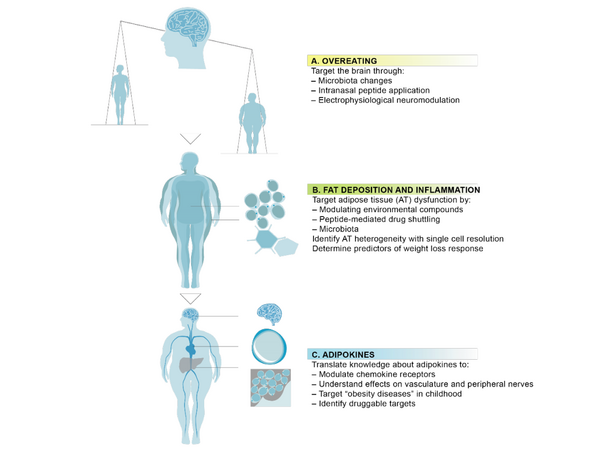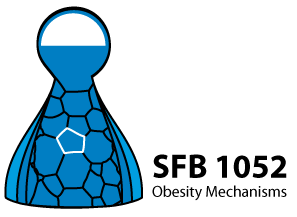Research program of the CRC 1052
The prevalence of obesity (in Germany: 24%) has increased worldwide by pandemic dimensions in recent decades, and it represents a major health challenge to many societies. Besides musculoskeletal or lung disorders caused by being overweight, obesity as a metabolic disorder also increases the risk of cardiovascular disease, type 2 diabetes, Alzheimer’s disease, depression, and some types of cancer, thereby contributing to a decline in quality of life and life expectancy.
Obesity is a multifactorial disorder influenced by a combination of genetic, behavioural, lifestyle and environmental factors, including control of appetite, satiety and energy expenditure, availability and nutritional content of food. Because the factors (and their interaction) causing obesity are only incompletely understood, weight loss strategies may not address the underlying causes of energy imbalance. Therefore, the ultimate long-term aim of the Collaborative Research Centre (CRC) 1052: “Obesity Mechanisms” is to define novel targets and mechanisms for future therapeutic approaches in treating obesity. There are several questions about the unresolved, pathogenic mechanisms of obesity and its comorbid disorders, three of which are central and unifying to this Collaborative Research Centre:
- What are the central mechanisms for overeating in the development of obesity?
- How does overeating lead to adverse fat deposition and adipose tissue inflammation?
- Which fat-derived “signals” (adipokines) contribute to obesity-related diseases?
In three main research areas, we aim to unravel complex mechanisms in the control of energy homeostasis by the central nervous system (A, Overeating), the determination of adverse fat deposition and its associated adipose tissue dysfunction and inflammation (B, Fat Deposition and Inflammation), and the regulation and effects of altered adipokine secretion in obesity (C, Adipokines).


